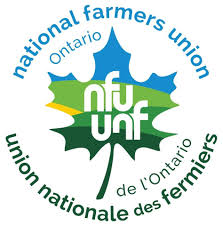Press Release
National Farmer’s Union
(Ottawa) — “Resolving supply chain vulnerabilities requires planning to prioritize resilience and stability instead of putting all our policy eggs in the export maximization basket,” National Farmers Union President, Katie Ward told the House of Commons Agriculture Committee, as it seeks advice on how the federal government can ensure the long-term stability and reliance of this supply chain in the face of disruptions such as those seen during the COVID-19 pandemic.
“Going forward, agriculture policy should be designed to build in safety valves and surge capacity so that disruptions are manageable challenges instead of full scale crises,” Ward stated. “The acute supply chain issues we face now have roots going back decades, stemming from multinational conglomerates’ use of global sourcing and ‘just-in-time’ delivery to minimize their costs.”
Ward highlighted fertilizer, where companies are blaming supply chain issues for their exorbitant prices yet still accumulating huge windfall profits. The NFU has asked the Committee to investigate these punishing increases in fertilizer prices.
“Farm families are subsidizing the system with their off farm jobs. For rural people, the supply chain is a one-way street, where the results of their work and the value of their crops and livestock disappear into the bank accounts of distant multinational companies,” observed Ward. “It is not surprising that so many feel left behind. Increasing economic inequality leads to social instability and disempowerment.”
Across the food system — from beef to vegetables — concentration of infrastructure ownership means the packers, processors and retailers benefit most.
“More regional and local abattoirs to serve cattle producers in every region, coupled with regenerative production practices, would provide food system resilience and rural jobs as well as climate mitigation and adaptation benefits,” Ward said. “For this to succeed, we need the federal government to ban captive supply and regulate JBS and Cargill to prevent them taking unfair advantage of farmers. The Maximum Revenue Entitlement system that regulates grain freight rates could provide a model. This would rebalance the system so that livestock producers get a fair share. Setting up a network of processors would prevent future crises in the beef supply chain caused by shutdowns at any of the three big plants.”
Ward noted that proactive, systems-level initiatives like a Canadian Farm Resilience Agency focused on assisting farmers with implementing climate-friendly practices that reduce reliance on costly inputs would reduce vulnerability to supply chain disruptions and support more stable incomes for farmers.
“We urge the federal government to create a better framework for rural jobs, infrastructure to serve farmers, and farm prices that reflect the cost of production,” said Ward. “These measures will bring prosperity and stability to Canada’s rural communities and agriculture sector.”







![Kenopic/Smith Auction [Paid Ad]](https://whitewaternews.ca/wp-content/uploads/2018/10/advertising-100x75.jpeg)

